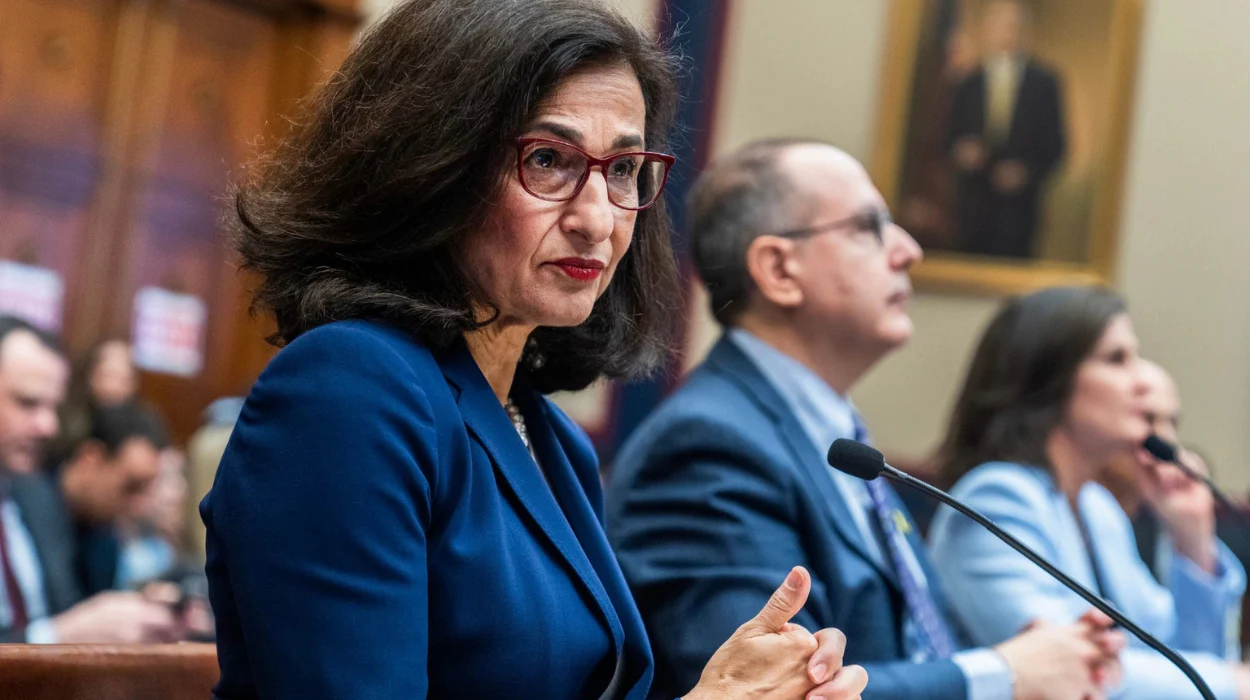UK (Parliament Politics Magazine) – UK PM Keir Starmer appoints Minouche Shafik as chief economic adviser, fueling fears Labour may push higher wealth taxes on inheritance, property, and assets.
As reported by The Telegraph, Keir Starmer’s new economic adviser has previously urged higher wealth taxes on inheritance, land, and property.
The Prime Minister appoints Minouche Shafik, ex-Bank of England deputy governor, to a key Number 10 role.
The move fuels speculation of significant asset tax hikes in Chancellor Rachel Reeves’s upcoming Budget.
Lady Shafik’s stance on taxing wealth and inheritance
Baroness Shafik, sitting as a crossbench peer, rejected the idea that hard work ensures success. She co-chaired an inquiry led by Labour minister Torsten Bell, which recommended multiple tax rises.
Mr Starmer has appointed Lady Shafik as chief economic adviser amid concerns over Downing Street’s economic oversight. She will play a vital role in Number 10, impacting the content of the autumn Budget.
In a December 2018 article, “A New Social Contract,” Lady Shafik urged wealth taxes to reduce intergenerational unfairness.
She said,
“Tax systems have become less progressive as advanced economies lowered corporate taxes and top rates on personal income in the 1980s and 1990s and raised value-added taxes.”
Ms Shafik stated,
“This is especially problematic given the widening inequality in market incomes. And because wealth has grown even more unequal than income, we should explore taxing wealth such as inheritance, land, and real estate.”
In a May 2023 speech, she proposed redistributive taxes on wealthy pensioners and high-value property owners.
She reportedly said that
“Those with comfortable pension pots must be expected to pay more towards the common good.”
Ms Shafiq also proposed
“the imposition of property taxes which would direct a flow of capital from those in high-value properties to those unable to get on the property ladder, through a capital endowment scheme.”
What did Lady Shafik and Torsten Bell propose for wealth taxes?
Lady Shafik helped lead the Economy 2030 Inquiry, established by Mr Bell at the Resolution Foundation.
The report proposed new wealth taxes targeting inheritance, real estate, shares, landlords, pensions, and luxury cars. Its proposals included taxing capital gains on death, rental income via National Insurance, and raising the dividend tax to 20%.
Mr Bell and Lady Shafik are expected to work together on proposals for higher taxes in the upcoming Budget.
In 2008, Lady Shafik worked under the Labour government as the senior civil servant at the International Development Department.
She has held senior roles at the IMF and World Bank and served as vice-chancellor of the London School of Economics.
Ms Shafik’s latest role was president of Columbia University, resigning after disputes over the treatment of Jewish students during anti-Israel protests.
How did Rachel Reeves plan to boost the economy?
Chancellor Rachel Reeves is considering raising the VAT threshold to support businesses and boost economic growth.
Officials said the Chancellor may adjust VAT rules while preparing a £20bn plan to stabilise public finances.
Next week, she will tell Parliament the economy is “stuck” and make productivity the focus of her second Budget.
Craig Beaumont’s views on raising the VAT threshold after Brexit
Craig Beaumont of the Federation of Small Businesses urged the government to use Brexit freedoms.
He said,
“Outside the EU, Britain has a rare advantage – we don’t have to lock ourselves into low VAT thresholds like our European neighbours. That gives us the freedom to set it at a level that actually helps entrepreneurs and growth.”
Mr Beaumont added,
“This would let thousands more small businesses keep trading rather than shutting up shop early. It would spare them from the single most painful tax to administer, which swallows up 45 hours – an entire working week – every year.”


